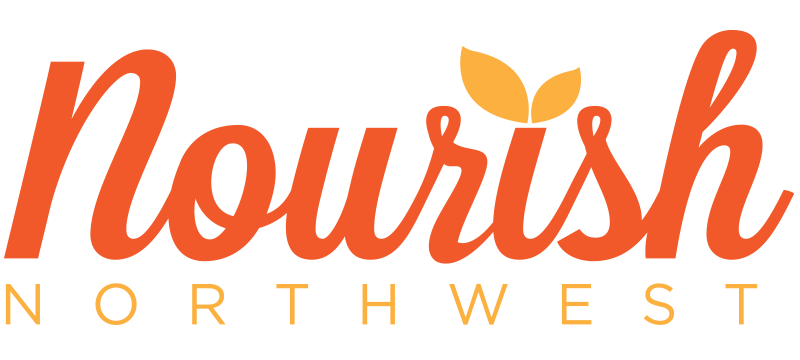My Approach Towards Lifestyle Change
Post by Olivia Blodgett, Registered Dietitian

If you have landed here because you are looking for help with weight loss, or assitance with making healthy dietary changes thank you so much for considering me to support you with this major lifestyle change. The person you trust to help you on this journey will be pivotal in your success and you want to make sure you don’t take the decision of who to work with lightly. It’s important to do your research when looking for a dietitian because the person you chose may or may not be the right fit. Therefore, I wanted to take this opportunity to show you what it will look like to work with me so that you can make an informed decision about moving forward.
Before you even decide whether to develop a weight loss plan, it’s important to consider your motivation and reflect on whether weight loss is beneficial or even necessary from a health standpoint. We, as humans, have different body types and sizes and sometimes it can be difficult to not compare our bodies to others’ or to our own body in the past. A number on a scale does not determine overall health. Not everyone can, should or needs to lose weight.
There is a time when weight loss is beneficial, such as when excess weight is affecting your health or ability to carry out your daily activities. Even so, I rarely weigh my clients or set a weight goal as part of my practice. Our bodies are all unique and the rate at which they experience weight loss can vary greatly. For many clients, the first step is to slow the rate of weight gain, followed by a period of adjustment and maintenance, and only then will weight loss commence. This could take several weeks, which requires sticking with the plan and staying the course. When the goal is a number, feelings of failure may ensue and all the efforts you have made may be undermined. I prefer to focus on setting behavior-based goals so that we can celebrate the everyday successes. Some examples of these goals are, “increasing vegetable consumption to 2 servings/day,” or “exercising 3 times/week.” These are specific and individualized goals that we will set together that can be easily tracked. When you shift the focus away from the number on a scale to a healthy behavior, it allows us to focus on a positive change. Meeting goals like this will not only make you feel better physically but is also empowering and motivating. Often, as an added bonus, the weight ends up eventually dropping.
It is important to understand that weight loss and/or making healthy changes can be a long process. I do not believe in fad diets or quick fixes. I have worked with hundreds of clients who have lost weight following “diets,” but the overwhelming majority gain it back. Quick weight loss may be exciting and it may be what you desire but I can assure you that slow, gradual weight loss resulting from lifestyle changes is the kind that sticks. For most, the weight came on over the course of several years and it may take that long to come back off. It can be extremely frustrating to be putting so much effort into weight loss and feeling like the scale isn’t changing. I truly understand this from the perspective of someone who has lost a significant amount of weight over the course of MANY years, and as a clinician who has coached hundreds of clients through the process. Again, this is why I don’t focus on a weight loss number as a goal. Many aspects of health can improve very quickly when healthy changes occur. Blood pressure can decrease within a few days of healthy changes. Cholesterol, triglyceride and glucose can improve rapidly as well. These indicators of health may improve long before weight loss occurs.
It is very normal to struggle throughout this journey. Making lifestyle changes is difficult. One of my roles as your dietitian is to help you trouble shoot. Even the most motivated person will face normal challenges and the most valuable thing we can do together is determine how to navigate these bumps in the road, rather than give up. Some other things that you can expect from me are:
- I will listen to you without judgment. Our initial appointment is the time for me to learn everything about your journey, thus far. I know this is hard and can be emotional. I want to hear it all.
- I will help you set individualized goals and develop a plan of action. I do not have a one-size fits all approach. We will figure out a plan that works for you specifically. We all have different needs, personalities and learning curves.
- I can provide you with meal plans, recipes, resources and/or workouts. We may also consider tracking food.
- I will be there as much or as little as you need me. Some patients benefit from weekly follow-ups whereas others like to space it out monthly or even longer, especially during periods where they feel like they have things well under control. You decide what level of support best suits you.
- I will be receptive to your feedback. If there is something that isn’t working for you, I would love to hear it. We can adjust our plan. This journey is a fluid one.
In turn, I do have some expectations for you. We will be speaking once/week or less and it’s up to you to do the hard work in between our appointments. Here I what I am asking from you:
- You have to be ready. If you are not truly, truly ready to make some changes, then now may not be the right time. Like I said, this process requires work. It will require time, dedication and daily effort. If this approach doesn’t fit into your life right now, you may want to re-visit it at a different time.
- You have to be motivated. I will be there to help coach you, encourage you, praise you for your successes and talk you through your hurdles. I can help inspire you but if the motivation is not coming from within, we will be limited in what we can do.
- You have to put in the work. I believe a healthy lifestyle requires meal planning, cooking and exercising. All of these things take time every day. I can be there to help you with meal ideas that are tailored to your preferences and lifestyle and work with you to develop a fitness plan (I am also a personal trainer). But ultimately you have to carry out these plans. Please note that I firmly believe cooking must be involved to some extent. Forming a healthy, nourishing relationship with food involves connecting with it and viewing cooking as self-care. Exercise is MUST. Real, hard exercise. Getting to a place where you have trouble carrying on a conversation several times a week is essential.
- You have to be honest. It is 100% normal and expected to experience bumps in the road. Being honest with yourself and me about whether or not you followed your goals is crucial to your success. I can’t help you troubleshoot if I don’t know what’s really going on.
- You have to adapt healthy living as a lifestyle. It’s not just about spending an hour in the gym occasionally and some time in the kitchen or at a salad bar. It’s about incorporating movement into your daily life as often as you can. It’s about considering how to fit into your life healthy eating no matter what you are doing. This might mean planning ahead and preparing healthy meals and snacks to bring with you during the day. This might mean planning new healthy menus for your celebrations, or planning your vacations around doing something physically active. It’s a whole new way of approaching life. It takes work up front but the possibilities of a healthy lifestyle are so exciting and rewarding. These changes can open up the door to so many new experiences and so many delicious meals!
If you are still with me, I want to work with you, I want to support you and I want to inspire you. The road is long but it is so worth it and I can’t wait to help you through it!

